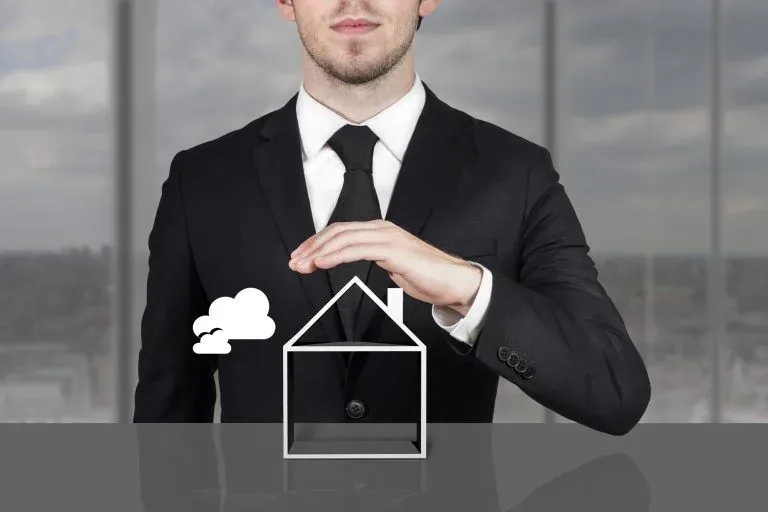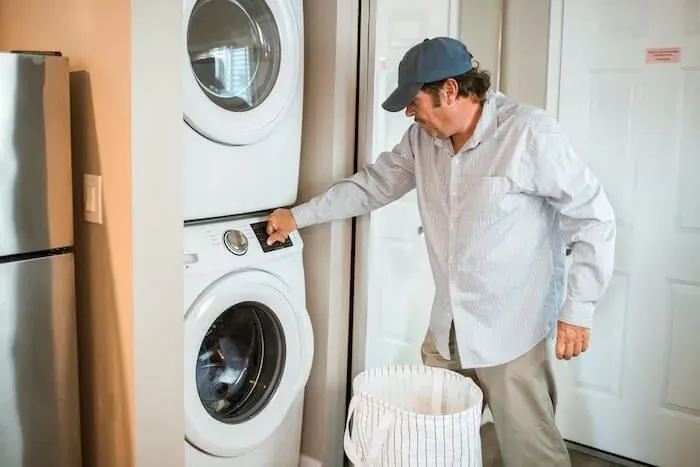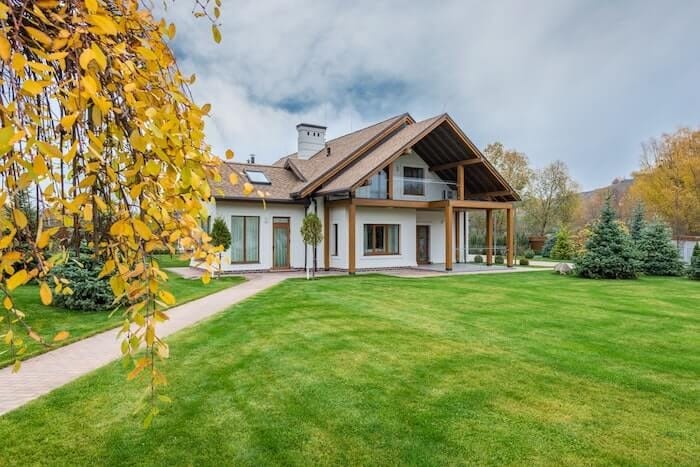Airbnb Security Deposit: To Charge or Not to Charge?

Whether you’re a new or seasoned host, a question that you might ask is whether to charge an Airbnb security deposit for your rental property. As a vacation rental owner, you should be aware that renting is not a no-risk job.
As much as you try to maintain your property and keep it in good condition, accidents can happen, and things can get broken or damaged. Adding a damage deposit to your listings as a safety measure will ensure that any damages, breakages, or lost items are taken care of. Generally speaking, guests are happy to pay a security deposit, depending on the amount of course.
As with many things, adding a deposit to your Airbnb property comes with a list of pros and cons. Read on to discover everything you need to know about charging a damage deposit for your vacation rental home and how to do so with iGMS.
What is an Airbnb Security Deposit?

An Airbnb refundable deposit is a set amount of money that the platform collects from guests. This covers any property damage that occurred during their stay. Airbnb security deposits are refundable if the property was not damaged in any way.
Airbnb allows hosts to set up security deposits to cover minor damages. For example, if guests break glasses while staying at your property, you can charge them for the deep cleaning. Having a security deposit in place will allow you to deduct the cost of the cleaning fee from the amount. The guests pay for the damage, and you don’t have to spend your money to fix the problem.
Is it normal to pay a security deposit on Airbnb?
Yes, it’s quite normal to pay a security deposit on Airbnb, although not all listings require one. The deposit is there to protect hosts against potential damages during a guest’s stay.
The decision to require a deposit is up to each host. Some ask for it, while others don’t. When you book a place, you’re not immediately charged the deposit. Instead, Airbnb holds your payment info and, if the host files a valid damage claim after your stay, they’ll charge you accordingly.
It’s crucial for hosts to be clear about the deposit terms in their listing. Guests should know the deposit amount, when it might be claimed, and how disputes get resolved.
In short, while some Airbnb listings do require a security deposit, the details can vary. Always check a listing’s specifics to see if a deposit is needed and how it’s handled.
Aircover vs Offline Payments for Security Deposits
Airbnb’s Aircover provides comprehensive protection for hosts, including damage protection, liability insurance, and host protection for unexpected events. However, it’s important to note that Aircover and offline payments for security deposits are specifically available for hotels and software-linked hosts.
Aircover
Aircover includes coverage for damage to your property caused by guests, ensuring hosts are compensated for any repair or replacement costs. In addition to damage protection, hosts are protected with liability insurance, covering up to $1 million for incidents involving guests, such as injuries or property damage.
This also includes coverage for unexpected events such as vandalism or theft, giving hosts peace of mind. All claims are processed directly through the Airbnb platform, ensuring smooth and secure transactions without needing to handle payments directly.
Offline payments
Offline payments for security deposits are only available for hotels and software-linked hosts, allowing them to manage security deposits outside of the Airbnb platform. Hosts can collect security deposits directly from guests, providing flexibility in managing guest stays.
The host must clearly communicate the terms and conditions to the guest, and the collection must comply with local laws and regulations. This includes specifying the amount, conditions for deduction, and the refund process.
Offline payments offer more flexibility in terms of how and when the deposits are collected and returned, allowing hosts to tailor their approach based on their specific needs.

Should I Charge a Security Deposit on Airbnb?
Deciding whether to charge a security deposit is up to you as a host. While adding a security deposit can protect your property, it can also deter potential guests from booking. There is no explicit Airbnb security deposit policy, and the Airbnb platform does not expressly require it. Hosts can send it as a payment request for the entire security deposit amount, but most inform guests of their policy and charge guests when they make the initial payment.
With the current economic difficulties, people are scaling back and hosts should assess their listings. If there are any obstacles that may prevent guests from booking, consider removing them. Removing a damage deposit may have a positive impact on your occupancy rate. On the other hand, without a security deposit in place, you might have to cover the costs yourself in case of property damage.

How Much Should I Charge for a Security Deposit?
From reviewing what Airbnb hosts have reported on several forums, there seems to be no set amount for an Airbnb security deposit. Though, a common theme seems to be that the deposit shouldn’t exceed 20% of the total cost of the booking. The average damage deposit amount ranges from 100 – 500 USD per booking.
Remember to be clear about your deposit requirements in your listing description and your house rules. Getting your requests in writing can help protect you against misunderstandings and complaints.
The Airbnb security deposit works to protect your vacation rental business. While it equates to an actual cash value, an Airbnb deposit also deters problematic guests from booking your property. This, paired with guest checks, can ensure that the frequency of a direct violation is greatly reduced.

Aircover and Security Deposits: Comprehensive Protection for Hosts
Understanding the nuances between Airbnb’s Aircover and traditional security deposits is crucial for hosts looking to safeguard their properties. Depending on your listing and circumstances, you might need one or both to ensure maximum protection.
Aircover:
Aircover is Airbnb’s comprehensive protection plan, which includes damage protection, liability insurance, and host protection for unexpected events. Specifically, Aircover provides up to $3,000,000 in protection coverage for rare instances of damage. It covers a wide range of scenarios:
- Guest-Caused Damage: Includes damage to your house, furniture, valuables, or personal items caused by guests or their invitees.
- Vehicle Damage: Covers damage done by visitors (or their invitees) to parked cars, boats, or other vehicles.
- Cleaning Expenses: Additional cleaning expenses needed to remove pet messes, stains, smoke odors, or when uninvited guests are involved.
- Lost Revenue: If you have to cancel confirmed reservations due to guest-caused damage, Aircover compensates for the lost revenue.
However, Aircover does not cover:
- Damage from typical wear and tear
- Loss of currency
- Natural disaster-related losses (e.g., hurricanes, earthquakes)
- Damage or injury to guest or third-party property (covered by host liability insurance)
- Standard check-out cleaning duties (dishwashing, laundry, garbage disposal)
Aircover offers a robust safety net, ensuring hosts can confidently list their properties.
Security Deposits:
Security deposits, managed either by Airbnb or directly by the host, serve as an immediate measure to cover minor damages. There are two types:
- Airbnb-Required Security Deposit: This is an authorization hold on the guest’s payment method, placed two days before the booking. Guests aren’t charged unless a valid damage claim is made. The hold is lifted 14 days after checkout if no damage is reported.
- Host-Required Security Deposit: This is a deposit hosts request directly for a booking. Guests see this amount before reserving, and they’re only charged if the host submits a payment request for damages. This deposit provides additional flexibility for hosts to manage minor damages directly.
Combining Aircover with a security deposit provides layered protection. Aircover handles significant and rare damages, while security deposits cover smaller, more common issues.
For hosts using API software and connected to Airbnb, managing these protections becomes more streamlined. Airbnb’s platform allows software-connected hosts to automate the collection and management of security deposits, ensuring consistent and hassle-free transactions.
What is the Difference Between the Host-Required Security Deposit and the Airbnb-required Security Deposit?
It can be a bit confusing to understand that there are different types of Airbnb security deposits. Depending on the property’s features and booking timing, either the host or Airbnb can handle the damage deposit. It’s important to note that neither hosts nor Airbnb will ever ask for a damage deposit based on a guest’s race, gender orientation, culture, or background.
There are two main types: the Airbnb-required security deposit and the host-required security deposit.
Airbnb-Required Security Deposit
An Airbnb-required security deposit is an authorization hold that Airbnb places on a guest’s payment method. This hold, which covers the deposit amount, happens two days before the booking starts.
Guests aren’t charged this amount, but they can’t access these funds until the hold is lifted. If no property damage occurs, Airbnb will lift the hold 14 days after checkout or before a new guest checks in. These security deposits help manage risks in the vacation rental industry.
Host-Required Security Deposit
A host-required refundable security deposit is a deposit that hosts request directly for a booking. If you’re a guest booking an Airbnb listing with a host-required damage deposit, you’ll see the amount before making the reservation.
Unlike the Airbnb-required deposit, this one doesn’t place a hold on your funds immediately. Guests are only charged if the host sends a payment request to collect it. Depending on the type and extent of damage, the amount the host requests may be more or less than the listed deposit amount.
How Do I Make an Airbnb Security Deposit Claim If Damage Does Happen During A Stay?
- Document the issue by taking photos or videos, getting repair or cleaning estimates, and/or receipts.
- Within 14 days of the responsible guest’s checkout, file a reimbursement request in the Resolution Center.
- Your guest will have 24 hours to respond to the request.
- If they don’t respond, pay partially, or decline payment, you’ll be able to submit a reimbursement request under Host damage protection. Airbnb Support will then step in and review the request.
What Are the Problems Associated With a Security Deposit?
While a security deposit might be a good way for hosts to protect themselves and their properties, there seem to be some downsides as well.
Guests worry about surprise charges
Some hosts worry that charging a security deposit will deter guests from booking their property. This may be true based on what some hosts are saying on the web. One Airbnb host on Reddit reported that he received a lot of questions about the security deposit from guests who were new to the platform.
These guests wanted to know whether the damage deposit was charged upfront or included in the booking price. In fact, this host believes that some guests decided not to book because they think they will need to pay the security deposit upfront. This is not the case, however, according to Airbnb’s website. The security deposit amount is refundable if no damage occurred during the guest’s stay.
Adds confusion to the booking process
Since charging a security deposit is optional, adding it to your listing may elicit more questions from potential guests. You will have to invest more time in explaining how your security deposit policy works and what it means for your guests. As a result, the booking process can end up seeming more complicated, making travelers less likely to book.
Charging a security deposit can create trust issues
Charging a security deposit makes some hosts appear as if they are less trusting of their guests. This is because hosts aren’t required to set a security deposit for their properties. An Airbnb host reported that she has a regular guest who won’t book with hosts who charge security deposits.
The guest says that she wants the host to trust that she will leave the place clean and free of damage. According to her, a host who charges a security deposit is picky and looking for a way to claim it as an extra source of revenue.
Guests are likely to be even less willing to book if you also have a strict cancellation policy. Take into account what other options you offer to guests to make their booking process easier if you opt for charging a security deposit.
Complaints about pending charges
Airbnb’s official help pages state that guests are not charged for the security deposit unless a host submits a claim. Some guests are saying otherwise, however. Several people have reported that Airbnb has created pending charges for their payment method for a security deposit. This gives hosts a bad reputation since it seems that they’ve given false information to their guests.
Hosts may still have to take guests to court
Having a security deposit in place doesn’t prevent court proceedings. Some hosts may still have to take guests to court if neither Airbnb’s Host Guarantee nor the security deposit amount covers the cost of damages.
Although adding a security deposit to your listing sounds like the right thing to do, you must take all this into account before making a decision. Reviewing the positives and negatives of having an Airbnb security deposit can help you decide if it’s right for your rental business.
To figure out the best approach to ensuring that your property is well protected, consult with your insurance agent. That way you will be sure that you’ve made the right decision and that you have adequate coverage.
Final Thoughts
Choosing to charge a security deposit is up to each host. Before deciding, consider your rental belongings, cancellation policy, and overall booking rate. Doing this will ensure that you make the best decision for your rental business, no matter what it is.
Another surefire way to give your business maximum support is to use automation. Vacation rental software, such as iGMS, uses automation technology to simplify management tasks. This frees up your time, allowing you to focus on enterprise growth and scaling.



![How to Start a Property Management Company [9 Tips + Interview]](/content/images/size/w600/2026/02/Checkin-Interview.png)

